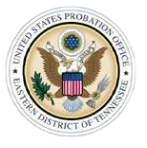The Pretrial Process simply means that your case has received legal action within the Court system, but you have not yet received a disposition action by the Court as yet. This could mean you have pleaded not guilty and are awaiting trial, or that you have pleaded guilty, and are completing a presentence investigation with the U.S. Probation office while awaiting your sentencing date.
Pretrial Diversion is a different disposition process altogether initiated only the U.S. Attorneys Office and is explained separately on that webpage of our site.
In either case, the navigation links on the left and here below will be very helpful in providing you information, resources, guidance, and answers to the Pretrial Expectations of you and us, Family Involvement, Forms, and Process/Resources.
Additionally, it will be helpful to refer to our sites on the U.S. Bureau of Prisons resources and Family Assistance.
Pretrial is the time period after an individual has been arrested but before they have been convicted of a crime. During this time period, a pretrial services officer will gather information about the defendant through interviews and record checks. The pretrial services officer reports the information to the judge, so the judge can decide whether the defendant can be released on pretrial supervision or should be detained.
At a detention hearing, the judge will decide whether or not to grant a pretrial release. If the defendant is granted a pretrial release, the pretrial services officer will supervise the defendant to ensure they are not a danger to another person or the community, the conditions of their release are met, and they attend all required court hearings.
Pretrial supervision ends if the defendant is found not guilty at trial or the charges are dropped against him or her. If the defendant is found guilty or pleads guilty, the pretrial services officer will typically continue supervising the defendant until their sentence begins. Pretrial supervision usually lasts a few months, during which time a probation officer may start the defendant's presentence investigation.
